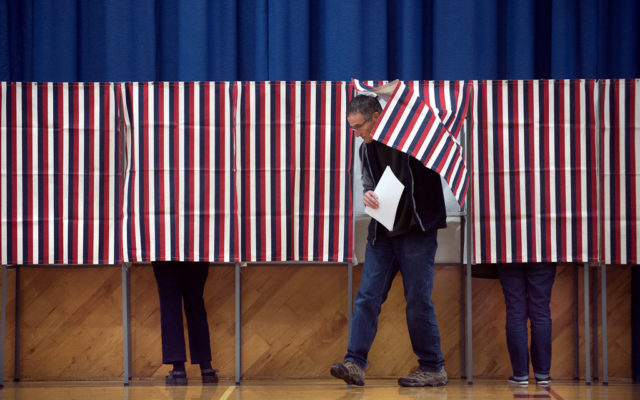
Towns wait for direction from Gov. Mills on how or whether June 9 voting will happen
Towns and cities whose usual polling locations have closed because of the coronavirus pandemic are waiting for guidance from the state on how or whether the June 9 primary will happen before they choose new locations and make other arrangements for voting.
The Legislature gave Democratic Gov. Janet Mills sweeping power over elections during the state’s civil state of emergency, including the ability to take “any reasonable administrative actions” to ensure people can participate in the June 9 elections, which will determine the Democratic challenger in the high-profile race for Republican U.S. Sen Susan Collins’ seat and the Republican opponent for Democratic 2nd Congressional District U.S. Rep. Jared Golden.
That could include expanding absentee voting, or postponing the election, as Ohio, Maryland and dozens of others had done late last month. But municipalities are holding off on making hiring decisions and seeking new polling locations without guidance from the state.
They have a limited amount of time to decide on new polling places — the deadline to apply for permission to change polling locations is Friday, though state law notes that the deadline could change “if an emergency exists.”
“We’re in a holding pattern, like most other municipalities,” said Waterville City Clerk Patti DuBois.
The city’s polling location is usually the athletic center at Thomas College, but Thomas, like most colleges and universities, closed its campus last month to control the spread of the virus, which had sickened 519 people in the state as of Tuesday and killed 12.
Bangor also lost its polling location when the Cross Insurance Center closed in March. City Clerk Lisa Goodwin said the city has not looked for a new spot.
“It is hard for us to move forward with any other planning until the state makes a decision,” she said in an email.
No decision has been made on moving the date of the primary or changing methods of voting, Kristen Muszynski, spokesperson for Maine Secretary of State Matt Dunlap, said Tuesday. The authority to make those changes resides with the governor, she noted. Mills’ office didn’t comment Tuesday morning, but the governor is expected to speak to the media about the virus Tuesday afternoon at 2 p.m.
A number of advocacy groups, including those that focus on voting rights and conservation, have been pressuring Mills to take steps to ensure as much participation in the election as possible. The American Civil Liberties Union of Maine, the Maine Education Association, Maine AFL-CIO, SEIU Local 1989 and nine others on Monday released a set of recommendations for the primary.
They include allowing voters to register electronically, relaxing registration deadlines, increasing staff to handle mailed ballots, and developing emergency plans if town clerks or other election workers are unable to perform duties on Election Day. The groups also recommend maintaining a physical voting location if possible and recruiting volunteers who face a lower risk of coronavirus complications to staff them. People who are elderly and have pre-existing respiratory conditions are particularly vulnerable to the coronavirus.
DuBois, a 20-year municipal clerk, said she is not worried about finding a location, saying it “could be easy” with non-essential businesses shut to the public and public schools moving to remote learning due to the virus. But staffing the location safely while promoting social distancing would pose “the biggest challenge,” she said.
“I have a group of people who work elections, but I’m reluctant to reach out to them,” DuBois said. “They’re an older workforce and I wouldn’t feel comfortable putting them at risk at this stage in the game.”